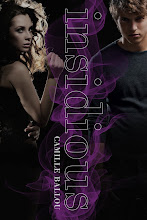Today I am reading the book SCENE AND STRUCTURE by Jack M. Bickham while watching three strapping young men dig post holes in my backyard. They keep adding and removing articles of clothing thanks to this warm, yet rainy weather. But sadly—I don’t think the naval is going to make an appearance. I will have to find solace in the fact that yesterday I received my second request for a full manuscript. Granted, I also got my second rejection but who’s counting. Certainly not me!
I have been grappling with my latest manuscript, THE ROOST. I am trying to prepare for the June 2012 WIFYR conference and am hoping to find nuggets of inspiration in Mr. Bickham’s book. So far, I have learned 1) that I don’t know the first thing about writing a book and 2) the first book I wrote wasn’t nearly long enough to be considered a novel! How encouraging for me.
Nevertheless, I am enjoying Bickham’s advice on scene writing.
The first point Bickham makes is that fiction must make more sense than real life. Effects must have causes; and causes must have effects. I couldn’t agree more. Unfortunately in my own writing, I can always think of effects, but never causes. Because the causes require creativity and planning, something I struggle with. They have to be believable. They have to be logical while still being unpredictable. That is a tall order.
Bickham recommends three components of a good scene.
The Goal:
Tarzan loves Jane and wants her to come back to his tree house.
The Conflict:
Tarzan is dumber than a monkey’s butt
And Jane doesn’t know how to swing on trees
The Disaster:
Jane falls out of the tree and blames Tarzan. She files charges of neglect and stupidity and Tarzan is thrown in jail for 7 to 10 years…which is like 8 months in human time or something.
Jane is a player and refuses to wait. She breaks up with Tarzan.
Now, according to Bickham I have just propelled my story forward with this scene, leading you to wonder about the bigger question…will Tarzan and Jane live happily ever after? Can they overcome this obstacle?
In theory, I get it. In practice, it eludes me. My current manuscript reads like a travel log (as my dear and brilliant writer friend helped me to see). Tarzan woke up. Tarzan ate bugs. Tarzan saw Jane. Tarzan liked Jane. Tarzan wants Jane. Tarzan fails. So, I am dusting off my spreadsheets this weekend and I am going to try to implement Bickham’s advice and plan a Goal, Conflict, and Disaster for every scene within the book. That’s a lot of plotting and planning to get done before I can start to rewrite my first 25 pages for the conference.
*Sighs to self*
So what will all of you be doing this weekend?











